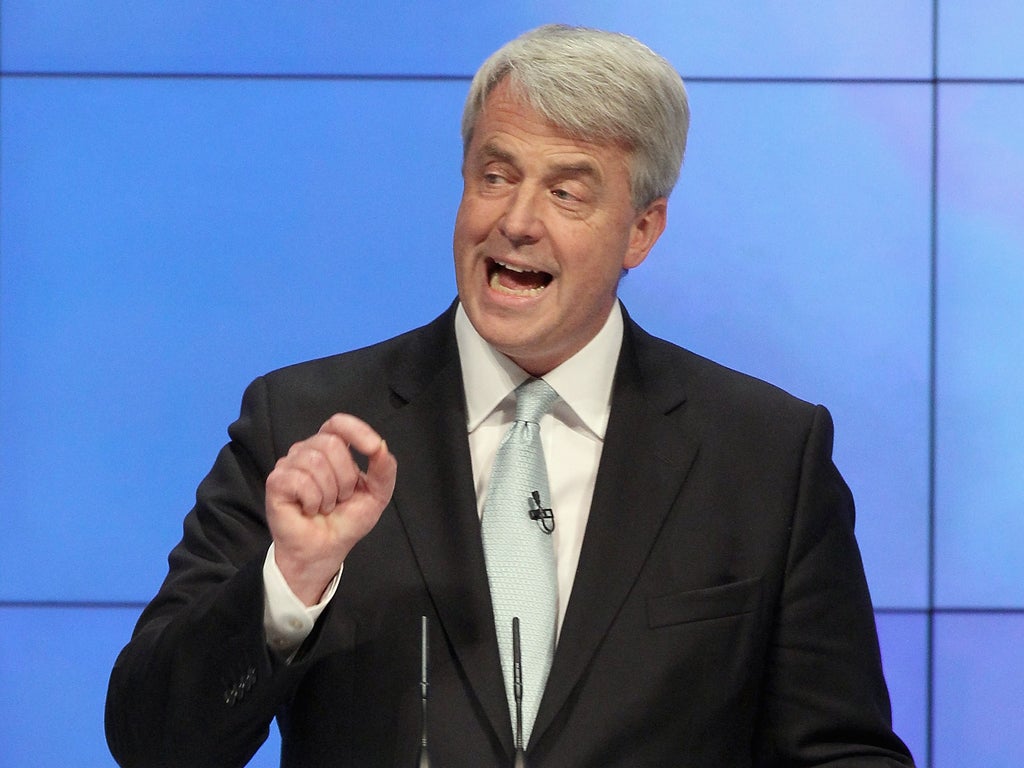Better NHS standard 'could save 10,000' lives, says Andrew Lansley

More than 10,000 lives could be saved every year if the NHS were to outstrip average standards set internationally, Health Secretary Andrew Lansley said today as he unveiled a new 60-step plan to boost patient outcomes.
The Cabinet minister said the record on unnecessary early deaths varied across specialties as he urged the health service to focus on "what really matters" - the results achieved for patients and their experiences while being treated.
"It is not a case of we do well or badly in everything but we do need to be absolutely clear how well we are doing and to focus on how we can improve," he told Sky News.
"If you look at the question of how many patients in this country die who could live if they got the best health care, it is literally over 10,000 patients a year if we were simply to get to a place which is better than the average across the OECD (Organisation for Economic Co-operation and Development) countries."
Mr Lansley was speaking in advance of a speech at a central London hospital when he will tell the NHS it must improve patient outcomes under a set of tough new goals.
The Government is producing 60 indicators relating to how patients fare during and following treatment.
The NHS Outcomes Framework includes a focus on improving cancer survival and a zero tolerance approach to hospital-acquired infections such as MRSA and Clostridium difficile.
The framework will ensure patients are treated with dignity and respect by measuring the "responsiveness" of staff to patient needs when staying in hospital.
It is also designed to improve women's and families' experiences of maternity services, increase the number of people who can access an NHS dentist and help older people recover independence after illness.
There will also be an indicator looking at carers who look after sick and elderly relatives and friends.
In an interview with the Daily Telegraph Mr Lansley said: "We have to clear the decks and be clear this is what we are focusing on.
"People say in three and a half years' time, in 2015, at the next election, how will we know whether you've succeeded or not? The answer is, 'Have the outcomes improved?'
"It will be my failure if we haven't improved them, and the NHS should feel that it has not succeeded. That is what we are setting out to do."
The aim of the plan is also to move away from a focus on targets, such as those for waiting times introduced under Labour.
However, patients will still have the right to prompt treatment within 18 weeks of referral by their GP as set out in the NHS Constitution.
Mr Lansley hopes the framework will also provide reassurance to parliamentarians about the accountability of the Health Secretary for the NHS.
There have been concerns that the Health and Social Care Bill, currently going through the Lords, dramatically weakens accountability of the secretary of state.
Mr Lansley also hopes the plan will provide a much greater level of NHS accountability by allowing better comparison with other health systems around the world.
The NHS has been criticised for lagging behind other countries in areas such as cancer survival.
Ministers will be expected to hold the health service to account on delivering increasing improvements across all areas in the new framework.
Where performance falls below minimum requirements they will intervene to drive up quality, although how this will work in practice is unclear.
The framework will also draw on existing information collected about the NHS to reduce the potential for "administrative burden".
PA
Join our commenting forum
Join thought-provoking conversations, follow other Independent readers and see their replies
Comments
Bookmark popover
Removed from bookmarks